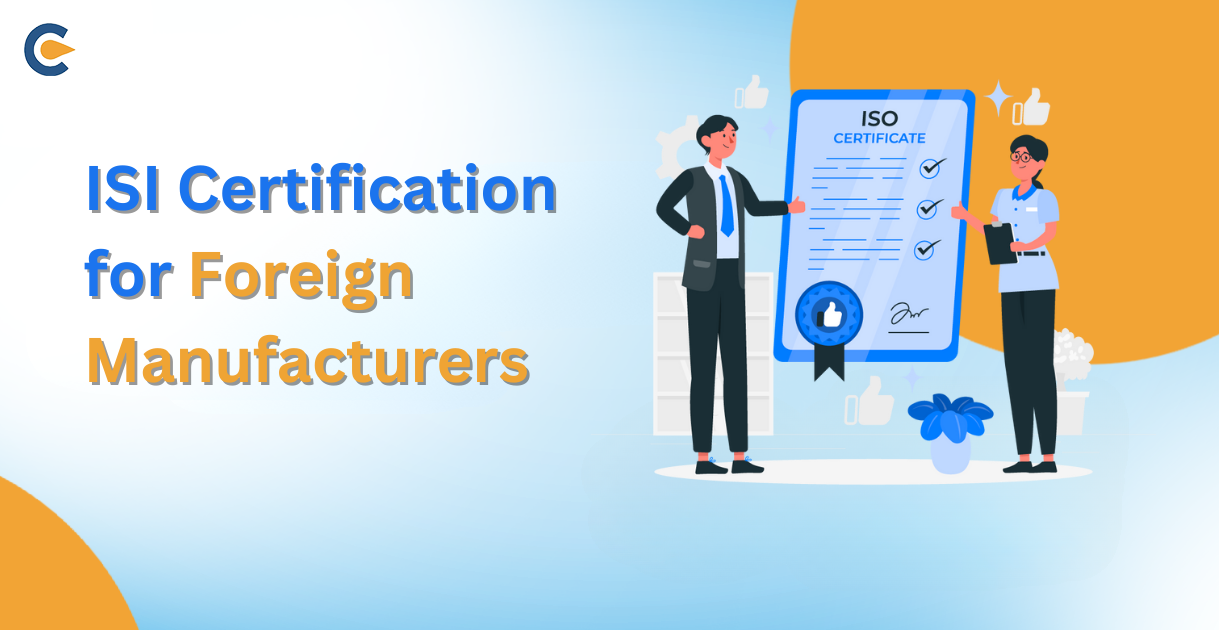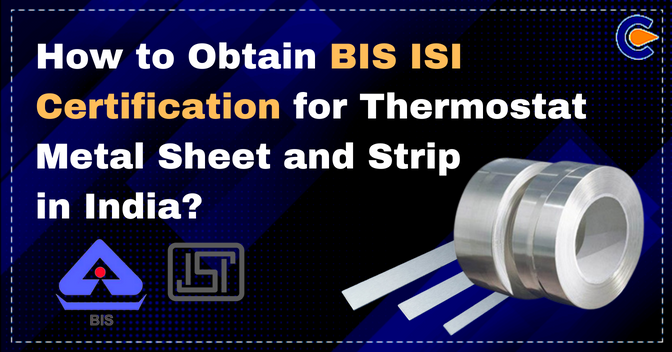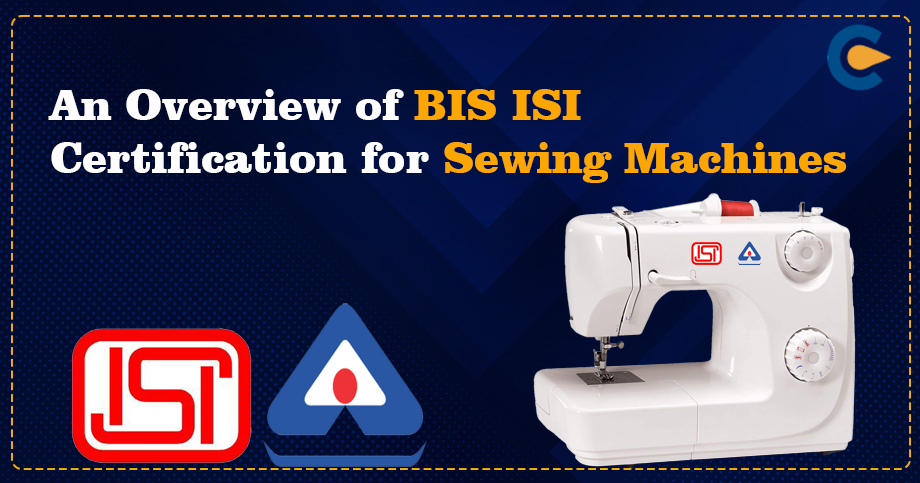Since 1955, the ISI mark has served as an indicator of standards compliance for industrial items in India. The mark certifies that a product complies with an Indian standard (IS) developed by the Bureau of Indian Standards (BIS), India’s national standards body. Without a doubt, the most well-known certification mark in the Indian subcontinent is the ISI Mark.
For numerous electrical goods, including switches, motors, heaters, wiring cables, kitchen appliances, etc., as well as other items, including Portland cement, LPG valves, LPG cylinders, automobile tyres, etc., the ISI mark is required in order for them to be marketed in India. ISI markings are not required for the majority of other items.
Products covered under ISI Certification for Foreign Manufacturer
The products that are covered under ISI certification for foreign manufacturers are:
| Steel Products | Medical Equipment | Electrical Transformers |
| Household Electrical Products | Cement | Cylinders |
| Food Related Products | Oil Pressure Stoves | Automobile Accessories |
ISI Certification for Foreign Manufacturers
In addition to offering a wide range of services, the Bureau of Indian Standards (BIS) has been administering the Foreign Manufacturers Certification Scheme (FMCS), a product certification program, for foreign manufacturers since 2000. All foreign manufacturers that produce some of the products on the list of ISI certification are acknowledged by the ISI Certificate for using the Standard Mark on products that meet Indian Standard requirements.
All items, with the exception of electronics and IT devices that have been approved by Deity, are covered under the Foreign Manufacturers Certification Scheme. Under voluntary or required certification, a product that meets Indian Standard requirements can obtain a certificate.
Products that are made and tested in accordance with applicable Indian Standards are granted an ISI Certificate, after which the product is given the Standard mark. It is important to highlight the different international certifications in order to uphold product standards. Certifications provide justification for standards that are limited to products. However, it is imperative to distribute highly standardised things to the general public.
For items that fall under either required or optional regimes, foreign producers are eligible to apply for FMCS certification. As of right now, more than 380 goods are on the required list and more than 1000 products are on the optional list. After the manufacturer receives certification, they must provide their license number and other standard information as specified by the Indian standard.
Merits of ISI Certification for Foreign Manufacturers
There are various benefits that foreign manufacturers can get after getting an ISI Certification. Some key merits of ISI Certification for foreign manufacturers are:
- Having an ISI Certification for foreign manufacturers shows that they are in compliance with Indian standards.
- The consumers in the market will always prefer the products with ISI certification.
- With ISI Certification for foreign manufacturers, they can get a competitive advantage in the market.
- The certification is compulsory to enter the market to sell their products, so ISI Certification is very essential for foreign manufacturers.
- ISI Certification for foreign manufacturer also helps their products to stay in the market for a longer time.
- The next benefit of ISI Certification for foreign manufacturers is that it covers many products, and is not restrictive in nature.
Conclusion
In conclusion, in order to facilitate the entry of foreign products into the Indian market, foreign manufacturers must obtain a BIS license under FMCS. BIS certification is essential to upholding quality and safety standards, and the FMCS certification process must be carefully followed. The Bureau of Indian Standards (BIS) runs this scheme to guarantee that goods fulfil the necessary requirements for importation into India.
ISI Certification for Foreign manufacturers with Corpbiz
With over ten years of expertise working with foreign companies, Corpbiz has over 250 BIS professionals in their expert team. Corpbiz will assist you in giving your product ISI certification. We at Corpbiz are among the top BIS FMCS consultants in India. Our expert team guarantees your company’s high-calibre operation and will assist you in obtaining FMCS BIS Certification. Corpbiz ensures that the ISI certification process is hassle-free and seamless for all our clients.
Frequently Asked Questions
Who oversees the FMCS registration procedure?
The Indian government's Electronics and Information Technology Goods (EITG) division and the Bureau of Indian Standards (BIS) share responsibilities for FMCS registration.
How much time does ISI certification take for foreign manufacturers?
Normally, the FMCS registration procedure requires thirty days from the moment an application is submitted in its entirety.
Is ISI certification for foreign manufacturers a one-time process?
No, the validity of an FMCS registration lasts for two years from the date of issuance. In order for manufacturers to keep importing and selling their goods in India after this time, they must renew their registration.
Can I import without a BIS certificate?
In accordance with the Bureau of Indian Standards' guidelines, importers are required to register their items with the BIS.
What does FMCS registration entail?
Foreign Manufacturer Certification Scheme registration is referred to as FMCS registration. For international firms looking to import certain electrical devices into India, this is a necessary prerequisite.
Why is registration for FMCS required?
Imported electrical items are guaranteed to meet Indian safety requirements through FMCS registration. It supports the expansion of the Indian manufacturing industry while simultaneously shielding consumers from poor or dangerous items.
What certification process is involved in getting an ISI certification for a foreign manufacturer?
The Foreign Manufacturers Certification Scheme is called FMCS. A manufacturing business may utilize FMCS certificates for its imports if it complies with BIS Standards. Note that all required and optional goods fall under the category of FMCS, with the exception of electronic products.
What is the main objective of the scheme product certification scheme?
It seeks to guarantee that the general public is provided with risk-free, high-quality products. Through the product certification program, BIS authorizes producers to use the standard mark on their goods and market them in India.
What does mandatory certification of an Indian standard mean?
For these items to be introduced and sold on the Indian market, the BIS Certification is required. The BIS issues BIS Certification in India or BIS Registration to guarantee the dependability, safety and quality of items that meet Indian Standards.
What role do certification standards play?
Adherence to uniform standards, such as processes or product specifications, is typically one of the primary goals of standardization. This might simplify commerce, lessen the need for logistical processes, stop consumer fraud, and enhance quality.
What is the full form of AIR?
AIR is an Authorized Indian Representative. An AIR is to be nominated for an ISI Certification for foreign manufacturers.
Read Our Article: ISI Certification For Packaged Drinking Water











